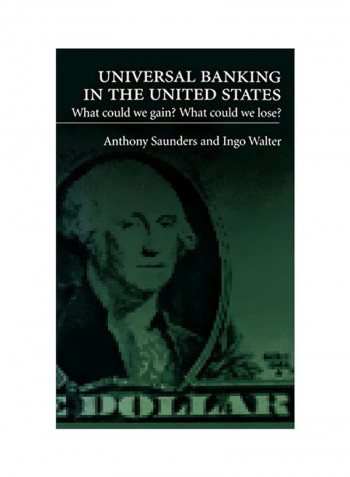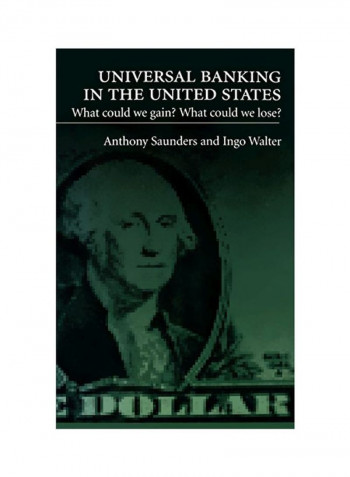Universal Banking In The United States: What Could We Gain? What Could We Lose? Hardcover
Recommend
Sort by
Rating
Date
Specifications
Author 1
Anthony Saunders
Book Description
In 1933 and 1956, the United States sharply limited the kinds of securities, commercial, and insurance activities banks could engage in. These regulations remain in place despite profound changes in the economic environment, in the structure of the national and international financial markets, and in technology. This book evaluates the case for and against eliminating these barriers. The authors study the consequences of bank regulation in the US as it relates to competition in international financial markets. They examine universal banking systems in other countries, especially Germany, Switzerland, and the UK, and how they work. They then apply the lessons to US banking, paying particular attention to the benchmarks of stability, equity, efficiency, and competitiveness against which the performance of national financial systems should be measured. They propose a level playing field on which any number of forms of organization can grow in the financial services sector, in which universal banking is one of the permitted structures, and where regulation is linked to function.
ISBN-10
0195080696
ISBN-13
9780195080698
Language
English
Publisher
Oxford University Press Inc
Publication Date
6 January 1994
Number of Pages
286
Author 2
Ingo Walter
Editorial Review
Universal Banking in the United States is an excellent book that provides a careful, in-depth analysis of the case for and against a shift to universal banking in the US...Quite readable and extremely interesting. It is of interest to a wide audience, including bankers, regulators, and lobbyists, and should be read by every US legislator. * Bankers Magazine *



